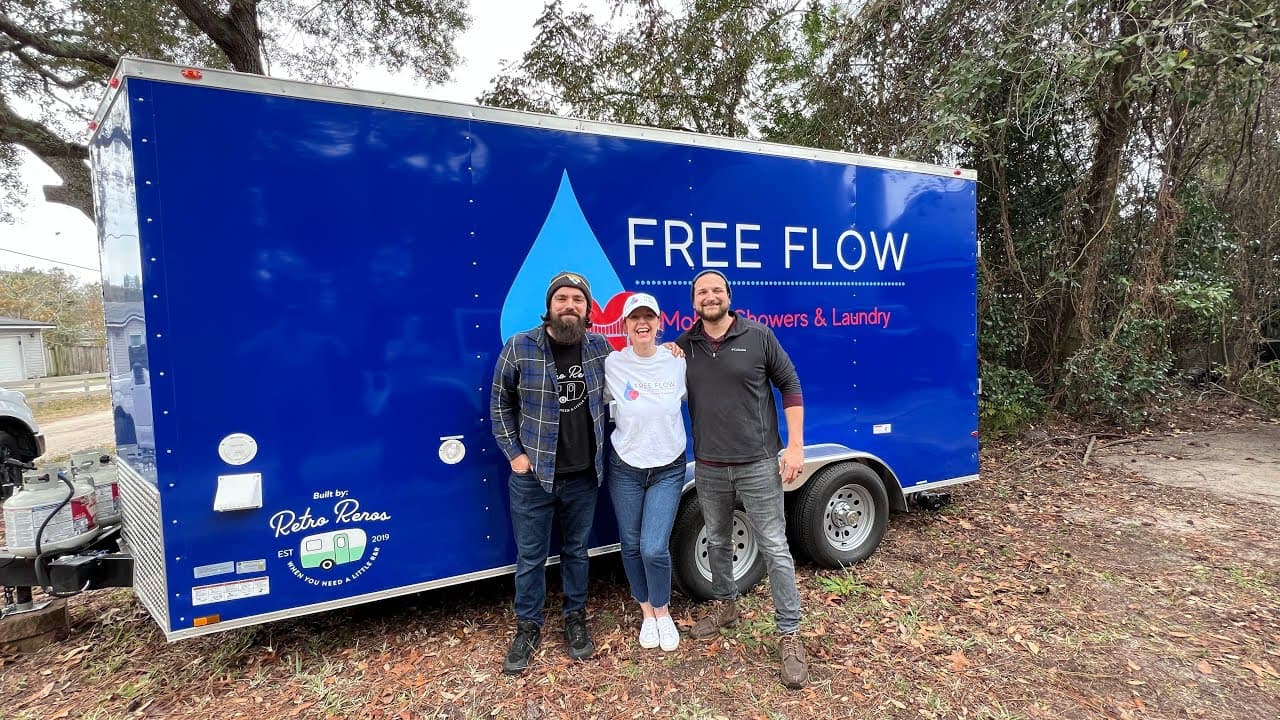Jacksonville Group Buys Mobile Shower Trailer, Expands Homeless Services
Matthew 25, a Jacksonville based thrift store that partners with Go Church, purchased a mobile shower trailer to provide free showers to people experiencing homelessness in Jacksonville. The trailer will be operational in April 2026, and leaders are coordinating with New Directions and local churches to present a comprehensive outreach plan to the Jacksonville city council.

Matthew 25, a Jacksonville based thrift store affiliated with Go Church, purchased a mobile shower trailer on November 20, 2025 to offer free showers to people experiencing homelessness in Jacksonville. The trailer contains two showers and sinks and cost under $15,000. Hygiene supplies such as shampoo, conditioner and soap will be provided from the group s existing hygiene bags. Because freezing temperatures can damage plumbing, organizers plan to bring the trailer into service in April 2026.
The purchase builds on Matthew 25 s prior investments in mobile services. The group previously acquired a mobile hair salon trailer and has conducted outreach events offering haircuts and clothing in partnership with New Directions homeless shelter. Leaders from Matthew 25, New Directions and area churches are coordinating to present a comprehensive plan to the Jacksonville city council. A special committee meeting is scheduled to discuss homelessness and outreach, where the mobile shower will be part of the conversation about next steps.
For residents of Morgan County the new trailer represents both immediate practical benefits and broader public health implications. Access to regular showers and basic hygiene supplies can reduce skin infections, limit disease transmission, and improve the management of chronic health conditions for people without stable housing. Restoring personal dignity can also lower barriers to seeking medical care, applying for employment and connecting with longer term housing resources.
The effort highlights how local nonprofits and faith based groups can fill service gaps, but it also raises questions about sustainability and policy. Volunteers and small nonprofits can provide crucial interventions, yet long term solutions require municipal support for maintenance, storage and staffing. The city council committee will need to consider funding, permitting and winter storage plans to ensure the trailer remains a reliable resource rather than a short lived project.
Community leaders framed the trailer as a dignity restoring service that meets basic needs while outreach partners work to link people to shelter and case management. Still, the initiative underscores systemic challenges that residents and policymakers must confront. Lack of affordable housing, limited shelter capacity and inconsistent access to healthcare mean mobile services are an important stop gap but not a substitute for coordinated policy responses.
As local groups prepare their presentation to the council, residents who care about homelessness and public health can monitor upcoming meetings and partner initiatives. The mobile shower trailer is set to begin operations in spring 2026, and its success will depend on cooperation between nonprofits, faith based organizations and municipal officials to address both immediate needs and the structural causes of homelessness.


